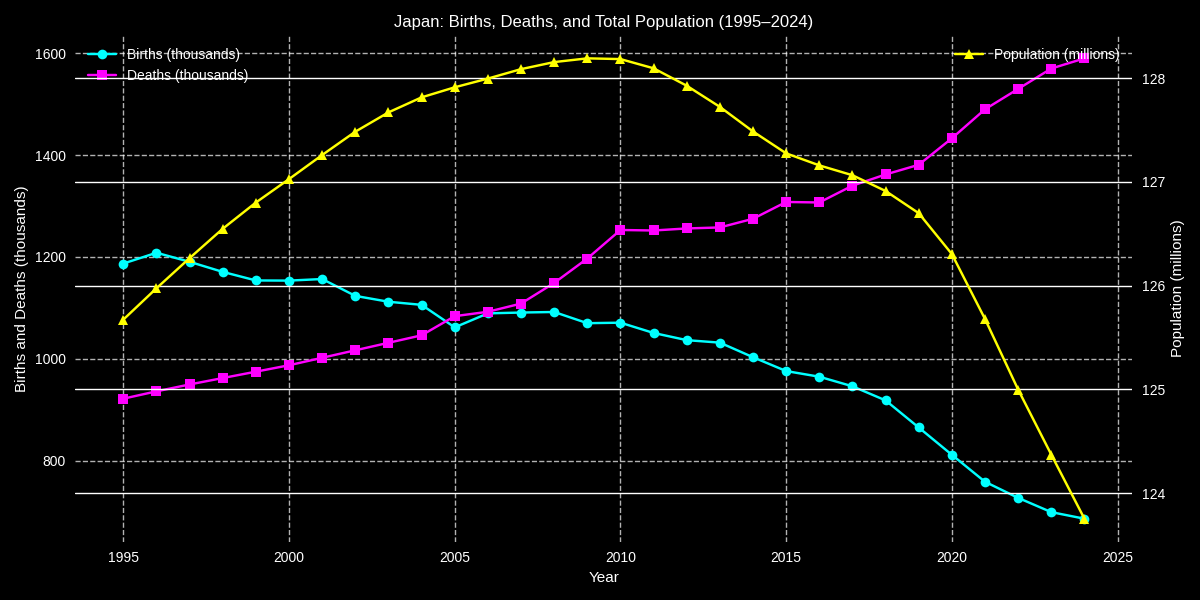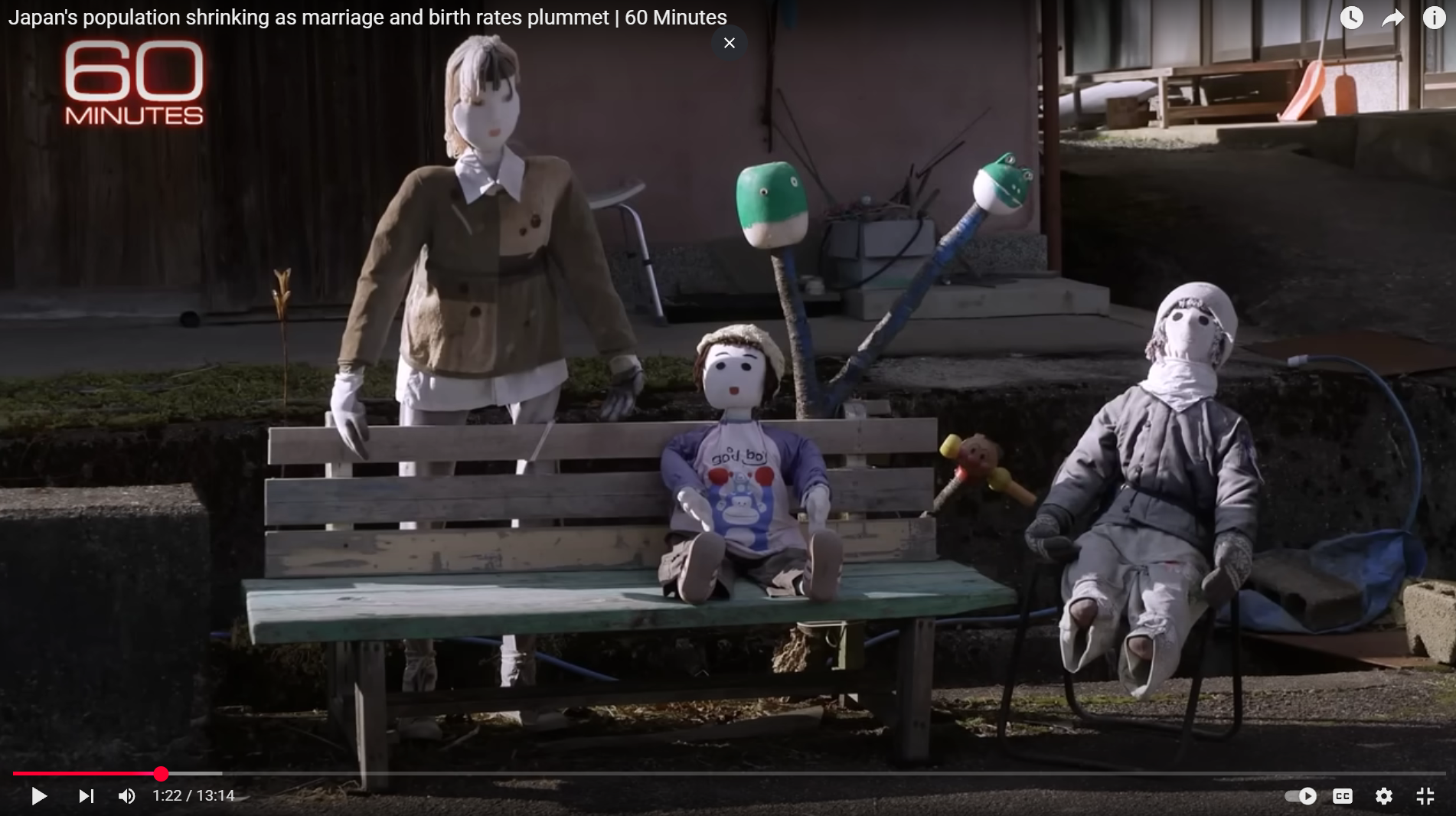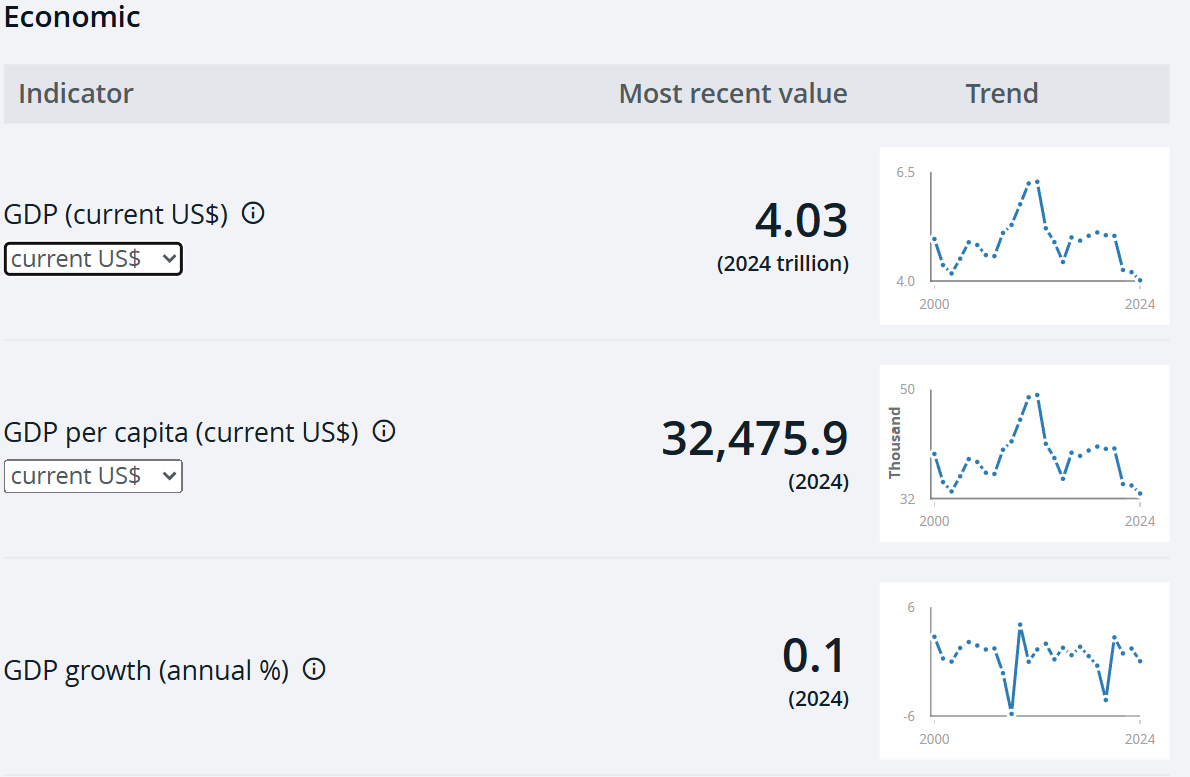Ticking Time Bomb!
Sorry for the alarming title, I was simply doing some research on Japan. In fact, I was planning a trip. I have never been there, and before it is too late, I think I should do a quick visit for sure. Nerd that I am, where do I first go? Well World Bank of course! Did you guys know that world bank has a very user friendly public data site and you can download data as a csv file for virtually any country! Absolutely amazing page!

I will start with this simple plot. It is easy to understand and fundamental data behind every problem Japan is having currently, while still being the 5th largest economy. Above is a plot of people born, death and population. Around 2005, for the first time, the number of deaths crossed over the number of people born. It only follows, if that happens, population will start to decline, that started around 2010 and rather precipitously. With the current trend, it is basically impossible to reverse, at least in the short term. If you read about what is happening at Japan socially, it is nearly impossible to reverse this trend in the long term as well. I was watching this 60 min documentary on YouTube.
https://www.youtube.com/watch?v=T7l4-efvTi4
Demographic Freefall
Japan's population dropped by a record 910,000 in 2024—the 16th consecutive year of decline—driven by a record-low birth rate of 750,570 and deaths outpacing births by over 900,000, projecting a fall below 120 million citizens in 2025. This mirrors broader social erosion, as rural areas see the sharpest losses, exacerbating urban-rural divides and community fragmentation. The video above shows a village, Ichinono, population 50, and not that far from Tokyo, where citizens are using puppets to give an illusion of people living in the village!

still from the video above
I have seen plenty of empty villages in US and elsewhere in the world, but no where I have seen this desperation. If this is not sad, I don't know what is! While the puppets are not a substitute for people, the process brings joy to the residents and offers a hopeful perspective on the challenges of rural life in Japan. The segment also featured a young family, the Katos, a couple who moved to Ichinono for a quieter life and whose child was the first baby born in the village in over two decades.
Economic Stagnation Amplifying Social Pressures:
The shrinking workforce—coupled with an aging population where 1 in 10 people are now over 80, threatens economic growth, strains social security systems, and widens inequality, as fewer young workers support ballooning pension and healthcare costs, fostering resentment and reduced social mobility. Japan has one of the highest life expectancy, in the world at 84 years. Also 2025 is the year when Japanese baby boomers turns 70, a significant milestone, because cost of healthcare dramatically increases at 70, as per Japanese state media.

Source, I am lazy to plot my own way!
So, there it is, a stagnant or declining population translates to stagnant GDP growth. It is still the 5th largest economy, but with no growth.
Hikikomori
I have to mention this but I am not going to go into more detail, because this is simply depressing, and I have done a lot of research on this topic in the past. There are numerous videos on YouTube on the subject, but I am not going to link them for the same reason. In short, Hikikomori is a Japanese term that describes a severe form of social withdrawal. Individuals experiencing hikikomori, often adolescents and young adults, isolate themselves in their homes for extended periods, typically six months or longer, and avoid social interaction, work, or school. Its causes are complex and can involve a combination of sociocultural factors (like high societal expectations, academic pressure, and economic difficulties), psychological factors (such as introverted personality traits, past trauma, or fear of failure), and potentially the influence of technology and online culture as an escape.
I can talk on this subject for hours, but I am not going to. However, I must add, that this phenomenon, although first reported in Japan, but there are examples observed now in South Korea, United States, Spain, Taiwan, and even Oman. So this is not country specific anymore. Lot of it has to do with toxic work culture of steep competition, fear of failure and sticking (or not being able to) to the social norm or expectation.
Immigration as a solution
I obviously can't say that I have a solution, but immigration can be one. Japan have been one of the world's most homogeneous countries. The fact that they maintain their social signature and economic position for this long is a surprise to me. Probably that is a reflection of their social discipline. However, now they are almost at a point of no return and their government realize that, whether their people does it or not, I am not sure. Perhaps it is time to invite skilled and unskilled workers to Japan and really try and integrate them into the Japanese social fabric, otherwise in 10-20 years there won't be anyone left to do the basic public services in Japan.

